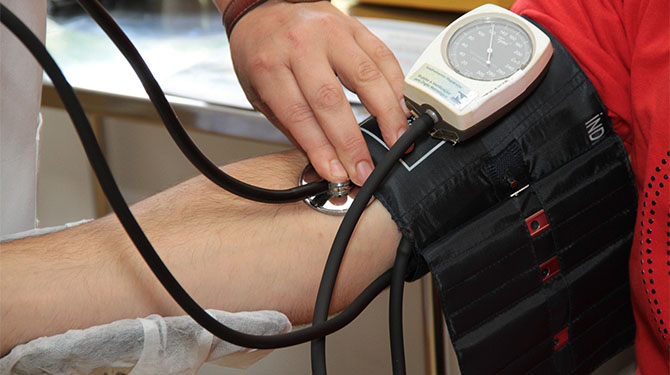
Cardiac catheterization (cardiac cath or heart cath) is a test used to explore the coronary arteries, using a fine tube (catheter) that’s inserted into an artery or vein of an arm or leg and maneuvered into the arteries of the heart.
Cardiac Catherization Overview
- Determine if a patient has disease of the heart muscle, valves, or coronary arteries
- Measures the pressure and blood flow in the heart
- Coronary angiography is often done during cardiac cath, allowing physicians to get x-rays of any blockages from contrast dye injected through the catheter
- Risks associated with this procedure are low
Why is this procedure done?
Cardiac cath allows our physicians to diagnose and treat cardiovascular conditions. It provides information on how well a patient’s heart is functioning, identifies problems, and helps determine the need for additional treatment. With this procedure, we can determine whether a patient has coronary artery disease, valve disease or disease of the aorta.
Other Cardiac Procedures
Cardiac cath is also used during other interventional and surgical procedures used to treat heart disease. Some of these include:
- Ablation
- Angioplasty
- Structural reconstruction
- Valve repair or replacement
How to Prepare for Cardiac Cath
- Do not eat or drink anything for at least 6-8 hours before the procedure, unless directed by your doctor
- Your physician may recommend that you stop taking any current blood-thinning medications prior to the test
- Inform your doctor of any medications or supplements you take, as well as any allergies you may have
- You may be asked to arrange someone to drive you home after the procedure
